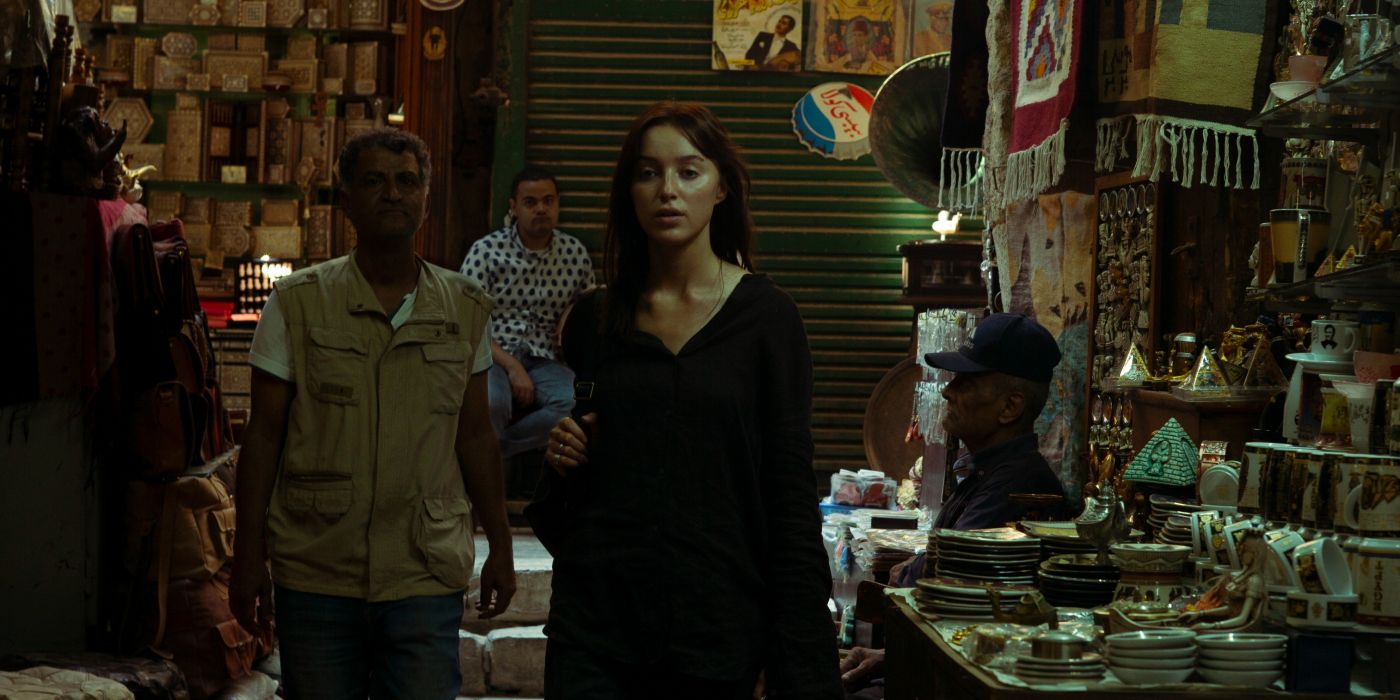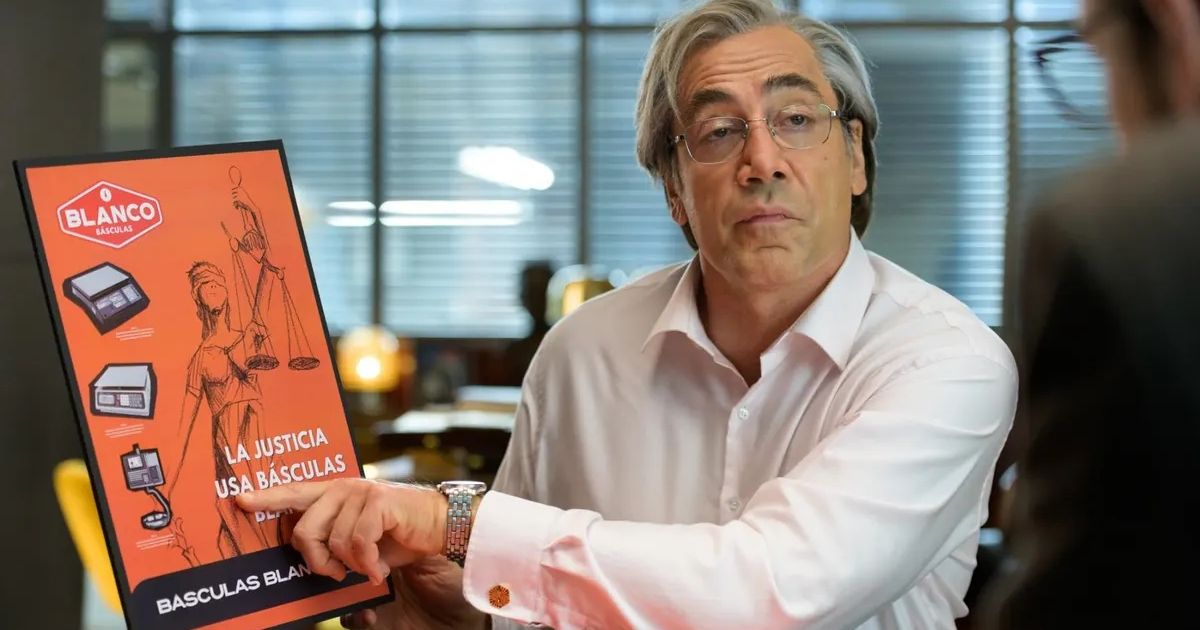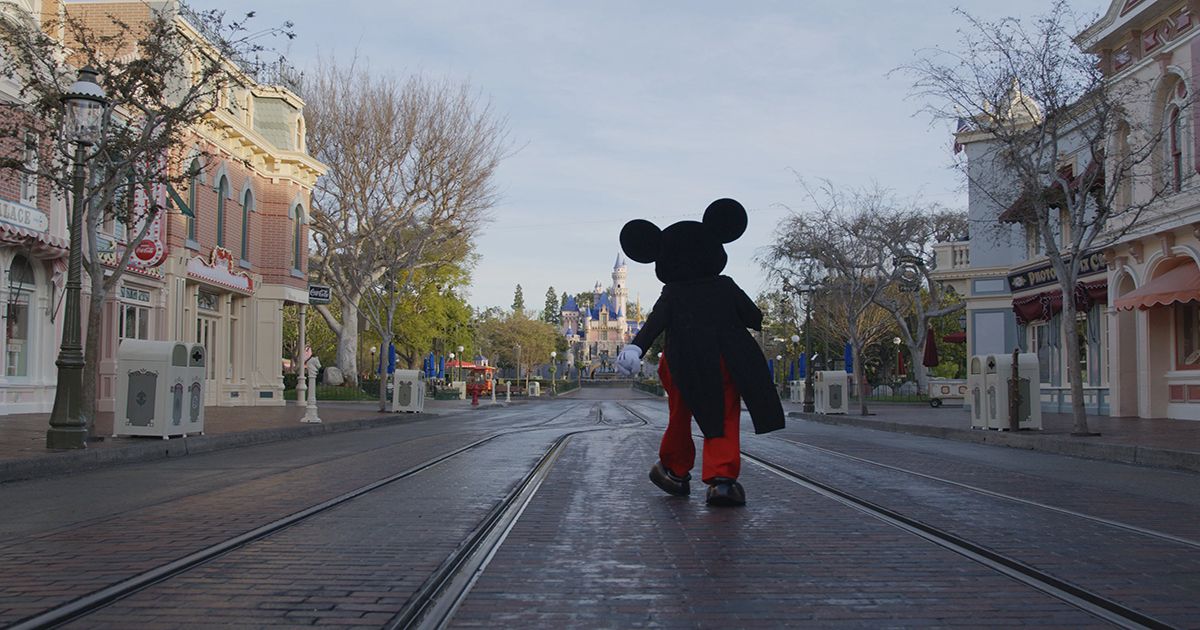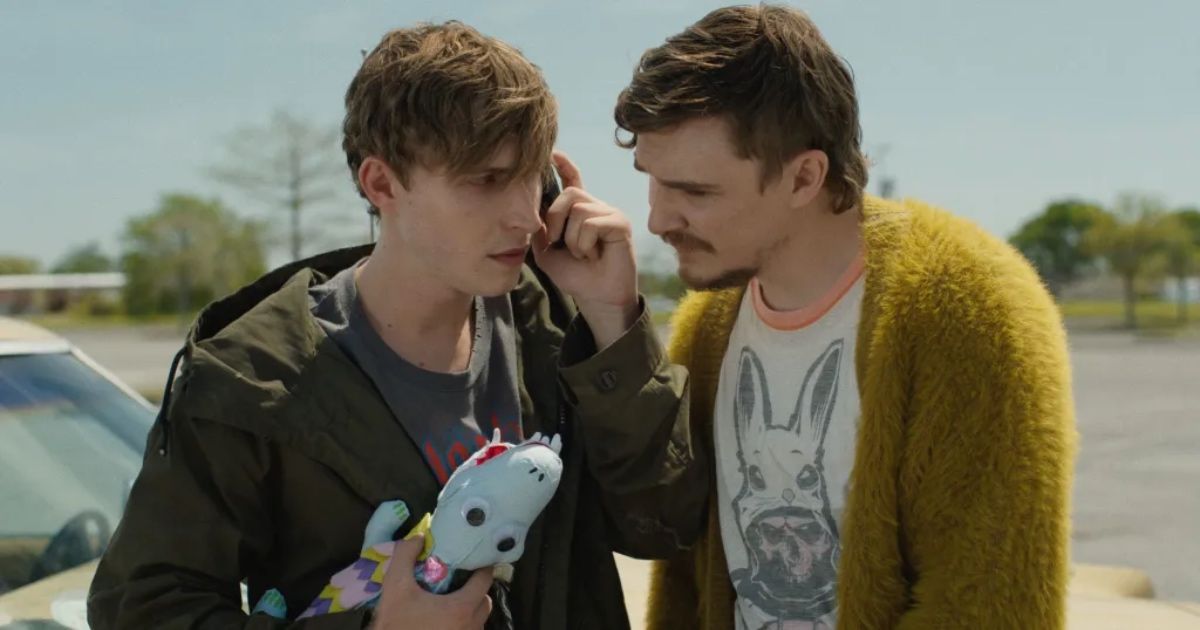Written and directed by Fernando León de Aranoa, The Good Boss opens with Julio Blanco (masterfully played by Javier Bardem) giving a speech to the employees of his factory that makes industrial scales about how they are all one, big family. It’s a sentiment many workplaces in the real world try to emulate; indeed, Blanco’s speech is one that we all have likely encountered at one job or another in a similar shape or form. Naturally, he hits all the right notes in his address, such as telling his staff that they are the children he and his wife Adela (Sonia Almarcha) never had. Right from the start, Blanco is soft but commanding, smooth, and, to a degree, even sexy, so you can’t help but initially believe every word he’s saying.
MOVIEWEB VIDEO OF THE DAY
At the same time, however, two other things are happening: Jose (Óscar de la Fuente), recently fired, storms into the meeting, his young children in tow, demanding Blanco for an audience; and, in his speech, Blanco mentions the need for perfection in the coming week because the company — more correctly, he — is up for a prestigious award. This is the foundation of both who Blanco is and the story that unravels in The Good Boss. Desperate for the award — he already has a spot reserved on his wall of awards in his luxe residence — Blanco, throughout the film, wedges himself into his employees’ lives, intent on solving their problems (from extramarital affairs to the protestation of an ex-employee), not necessarily because he cares, but because their personal problems get in the way of their performances at work and, by extension, threaten his much-desired win.
This also isn’t unfamiliar in the real corporate world. Just like we have all heard the platitudinal speech of “teamwork making the dream work,” we’ve also had bosses who couldn’t care less about their employees’ well-being unless profit is in jeopardy. The Good Boss effectively holds a mirror to capitalist systems and ideals, corporate greed, and professional narcissism, and, in this way, though it is hailed by many as a corporate satire, easily becomes more like a documentary of what it’s like to work for an asshole — which is a good thing for the movie, and ultimately a triumph for León de Aranoa.
Julio Blanco is One of Javier Bardem’s Most Villainous Roles Yet
The success of The Good Boss hinges foremost on the performances from its cast, who are all excellent. As Jose, de la Fuente peppers his disgruntled employee arc with enough farce that it garners laughs (both with and at him) and sympathy. Almudena Amor plays Liliana, one of Blanco’s new interns-turned-lover, with the cool calculation of someone who is at first seemingly love-sick and overly attached, but eventually reveals themselves to be steps ahead and always ends up on top. Manolo Solo delivers a sincere performance as Miralles, a management-level employee who can’t help but bring all of his problems at home to work. And even Celso Bugallo, as the painfully obedient Fortuna, is an imposing force. He barely speaks throughout the film, and only shows up when he’s called upon to carry out Blanco’s dirtiest deeds, but he radiates an anger, particularly in the film’s last act, that you immediately know has stewed over his life-long employment under Blanco.
Of course, it’s Bardem who stands in the spotlight, playing one of his most villainous roles yet. Though we’ve seen the Oscar-winner excel many times as the bad guy — whether in something fantastical like the Pirates of the Caribbean movies or the grittier and more grounded Coen Brothers’ film No Country for Old Men —The Good Boss stands out precisely because of how real Blanco is, and how prevalent. A male CEO with power, money, and influence, who only thinks about himself and would sooner discard his staff when it comes to profit and prestige, even when “loyalty” is painted in giant block letters in the workplace? In the mundanity of our capitalist-trapped lives, there’s not much more sinister or proximate than men like Blanco, and the business world is full of them.
Related: Best Workplace Comedy Movies, Ranked
The Good Boss had a much celebrated theatrical release in Spain in October 2021, and, as reported by Variety, was showered with Goya Awards (Spain’s Oscar-equivalent), from Best Film and Best Director (for León de Aranoa) to Best Actor (for Bardem) and Best Original Screenplay (also for León de Aranoa). It’s no wonder, really: more than just a movie about capitalism, León de Aranoa’s film is a spectacle of our realest issues, taking the difficult subject matter of power abuse and capturing it in a way that elicits laughter, but, at the same time, doesn’t make light of it. With all of Blanco’s lies, scheming, and empty sweet nothings, by the time The Good Boss’s final scene rolls, you’re hoping — desperately — for something to happen, even change, perhaps correct itself. It, of course, doesn’t because then the movie would be a fantasy.
The Good Boss is available in select theaters August 26.
You can view the original article HERE.






























